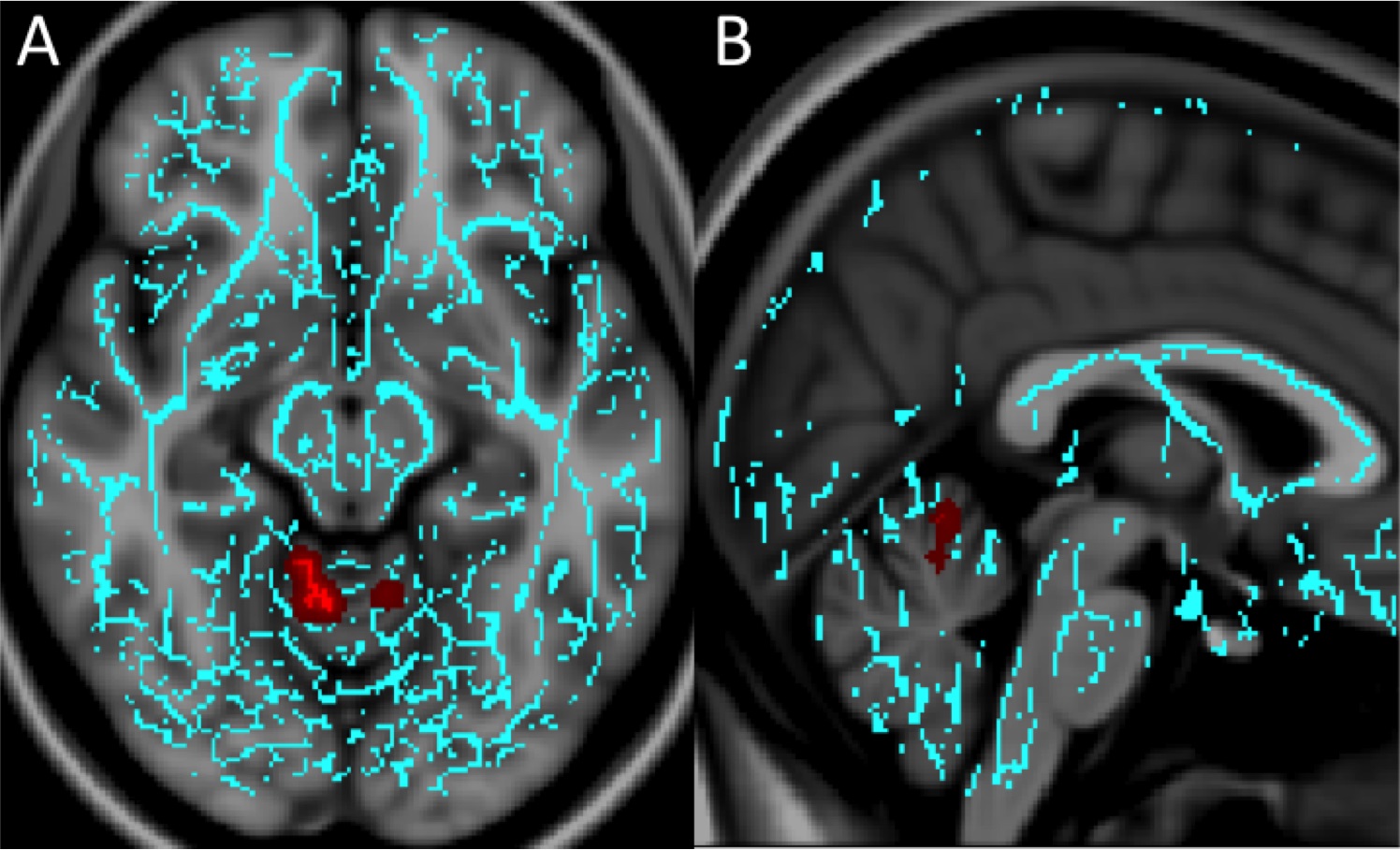MRI Study Reveals Distinct Brain Injury Patterns in People with Concussion-Related Depression and Anxiety
By MedImaging International staff writers
Posted on 01 Dec 2015
The results of a new MRI study published online in the journal Radiology has found that brain injury patterns are linked to post-concussion depression and anxiety.Posted on 01 Dec 2015
The new findings could lead to improved understanding, and treatment of post-concussion psychiatric disorders such as depression, anxiety, and irritability, which affect nearly 3.8 million people in the US every year.

Image: Significant white matter differences in patients with mTBI and anxiety (Photo courtesy of RSNA).
Researchers from the University of Pittsburgh Medical Center (UPMC; Pittsburgh, PA, USA) used a Magnetic Resonance Imaging (MRI) technique called Diffusion Tensor Imaging (DTI) to measure the integrity of white matter in the brain's signal-transmitting nerve fibers. The researchers tested 45 post-concussion patients using the DTI technique, and neurocognitive tests. The patient group included 18 with anxiety, 32 with depression, and 38 with irritability.
The results showed that patients with depression or anxiety had unique white matter injury patterns. Patients with depression had decreased Fractional Anisotropy (FA) compared to the control group. Patients with anxiety had less FA in the vermis area of the brain whereas patients with irritability patients with irritability showed no regions of significantly decreased FA compared to the control group.
Lead author of the study, Lea M. Alhilali, MD, assistant professor of radiology, UPMC, said, "Using other concussion patients as our controls was a big advantage of our study. When you are able to study a similar population with similar risk factors, you get much more reliable results. The regions injured in concussion patients with depression were very similar to those of people with non-traumatic major depression disorder. This suggests there may be similar mechanisms to non-trauma and trauma-dependent depression that may help guide treatment. There are two major implications for this study. First, it gives us insight into how abnormalities in the brain occur after trauma, and second, it shows that treatments for non-trauma patients with neuropsychological symptoms may be applicable to some concussion patients."
Related Links:
UPMC








 Guided Devices.jpg)





